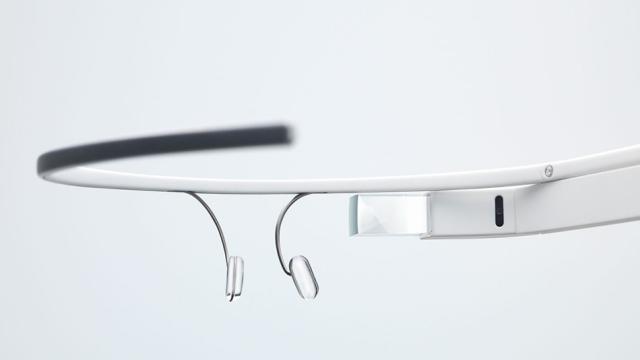Remember last year’s I/O keynote and all the skydiving and bike riding shenanigans Google pulled? That was fun! Not to mention the big reveal: Google Glass. But if you managed to catch yesterday’s three hour keynote, you probably noticed that Glass was noticeably absent. What’s up with that?
The answer’s surprisingly simple: Glass isn’t ready. For all the hype the media — and Google itself — has drummed up over the last few weeks, it’s still a beta product. It’s still in development, and isn’t readily available to consumers or developers. However much we think of it as a product, it’s still not much more than an experiment.
Accordingly, says a source at Google, the company is heads down ironing out the bugs. Unlike other Google products that have fallen by the wayside or been killed off altogether, Glass wasn’t included in the keynote because, well, we don’t yet live in a world where Glass is a thing. There’s plenty going on with Glass, it’s just all happening behind closed doors where hundreds — maybe even thousands — of developers are trying to figure out what to do with Glass.
Even today, Google has four dedicated sessions for Glass developers at I/O, and that speaks volumes about how Google is approaching this new wearable. Even before the Explorer Editions began shipping, Google held two hackathons in New York and San Francisco. At the “Glass Foundry” events, developers were shown the Mirror API and what the company had accomplished up until that point.
During that first session a handful of new apps — what Google calls Glassware — were announced. Google also mentioned today that a new Glass Development Kit (GDK) would be coming soon to make the process of developing for Glass easier, as well as adding new functions like an offline mode. Yes, either of those could have easily been a talking point during yesterday’s keynote. But the number of people Glassware directly affects measures in the low thousands. Advances in Google’s maps, search, and image products impact the lives of billions.
While Larry Page stumbled through yesterday’s Q&A after his closing speech and essentially avoiding any question about Glass, he did manage to reiterate that Glass was a “new category” and that it was “quite different” than existing computing devices and that the end goal is have happy users.
Google is clearly putting a lot of effort and money towards the development of Glass. But its absence during the keynote shouldn’t raise any flags. At most it should cause us to shift our perception of a product that’s still more promise than substance. It’s a fundamental shift in Google’s DNA from a company that just makes money off of ads to a company that’s really thinking about the future. Sure, the ad money is what’s allowing them to even work on projects like Glass and drive-less cars, but it’s a means to an end. And the end could be something spectacular.
